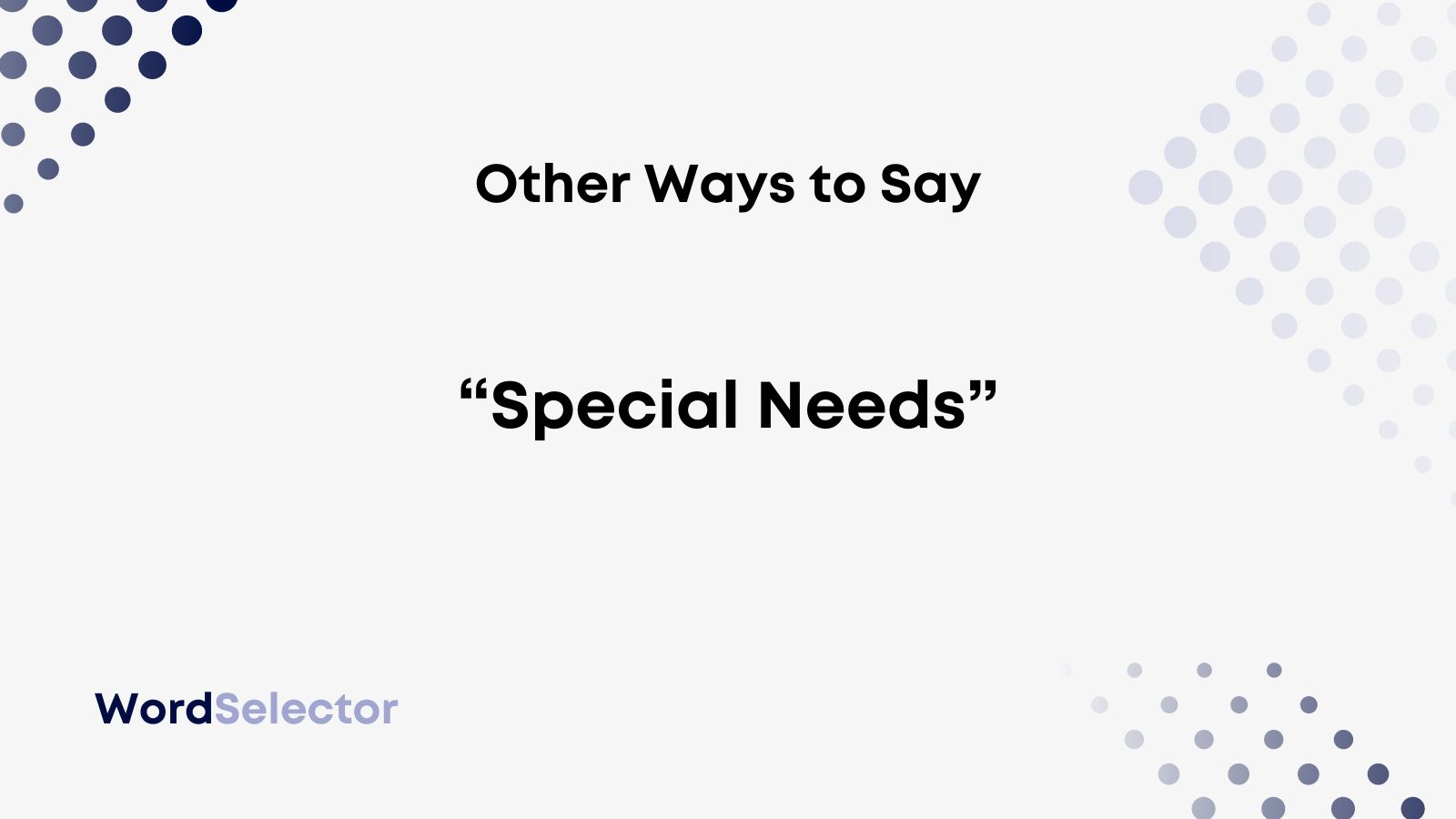Are you worried about writing “special needs”? Maybe you’re trying to find a new term that works and sounds less offensive.
Well, you’re in luck! This article will explore positive words for “special needs” that might work better in different circumstances.
Other Ways to Say “Special Needs”
- A person with a cognitive disability
- Learning disability
- Disabled
- Cognitive disability
- Developmentally disabled
- A person with a disability
- A disabled person
- Someone with a learning disability
KEY TAKEAWAYS
- “Special needs” is no longer politically correct, so you should avoid using it.
- “A person with a cognitive disability” is a great term in formal contexts.
- “Learning disability” is a better word for “special needs” that works well.
Keep reading to learn more about what you can say instead of “special needs.” There are plenty of formal and informal situations in education that might benefit you or your kids to learn about.
The final section will also talk about whether it’s OK to say “special needs.” You know where to go if you’re interested in learning more about that.
A Person With a Cognitive Disability (Formal)
“A person with a cognitive disability” is a good choice formally. It’s very specific, allowing you to tell people what disability somebody might have.
It might be wise to use a phrase like this when talking to parents at a school. If one of the students has a cognitive disability, you may want to make them aware to help them understand.
You may also say “a person with a learning disability.” They are similar phrases that highlight a disability without being offensive. It’s an inoffensive and correct way to show someone that you understand their disability.
You should use this phrase in every professional situation when it applies. It’s much more effective than “special needs,” as it is appropriate and politically correct.
These examples should show you more about it:
He is a person with a cognitive disability, but that doesn’t make him worse than us. You should treat him with respect.
A person with a cognitive disability is no different from you or me. Why are you acting like they are?
Learning Disability (Informal)
“Learning disability” is a simpler alternative that works in informal contexts. It allows you to show that someone has a learning disability that might make it harder for them to follow along at first.
You may want to use it when telling a coworker about another person’s disability. You may need to inform them to let them know that they might have to give them extra help when in a meeting.
Generally, this term is inoffensive and appropriate. You should certainly use it when highlighting someone’s disability. It’s much more effective than “special needs” as it uses appropriate and caring language.
The examples below should show you how it works:
Cherie has a learning disability, so she finds it hard to keep up. You need to work with her more.
I know she has a learning disability, so I’m trying to include her. I think it’s working well.
Is It OK to Say “Special Needs”?
It is not OK to say “special needs.” It’s not a politically correct term, as you should not refer to a disabled person as “special.”
If anything, it’s a very offensive phrase. It’s quite old-fashioned, so it might have been less offensive once, but that’s no longer the case today.
To avoid inappropriate language, you should completely remove “special needs” from your vocabulary. You should stick to the synonyms provided or use simpler words like “disabled.”
After all, using “special” implies that disabled people have needs requiring special care and attention. Most disabled people would tell you that their needs are just like anyone else’s, meaning they have “human needs.”
Feel free to bookmark this page to remind yourself of better ways to say “special needs.” There are plenty of better alternatives that aren’t offensive out there.

